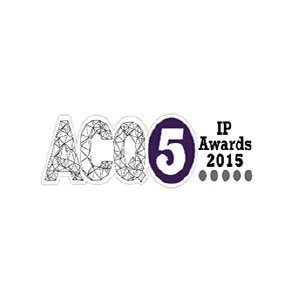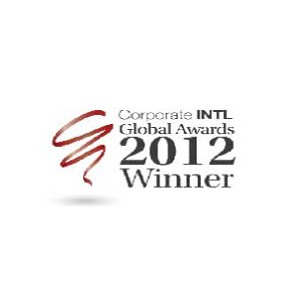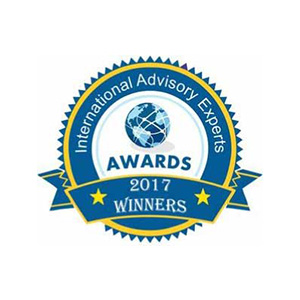No, in Chile, there is no need to use a trademark to obtain a trademark registration.
There is no legal obligation to get a trademark in Chile to sell or offer your goods or services.
But the fact that you use your brand in Chile will create minimal rights. Without a registration, in case somebody is copying your trademark, there is little you can do about it. For this reason, serious players have to register their trademarks in Chile. To register your brand, you will have to file a local application before the Chilean Trademark Office.
In Chile, there is a right of priority for trademarks. If a brand has previously been filed abroad, for six months, the interested party will have a preference from the date of its presentation in the country of origin to apply in Chile. Apart from this priority right, a trademark registered in another country does not offer any protection.
Trademark protection in Chile lasts 10 years from the registration date and can be renewed indefinitely every 10 years. A renewal application must be filed within six months before expiration date.
Before starting to offer your goods or services, you want to perform a trademark search in Chile. The reason is simple; you do not want to use a previously registered trademark in Chile to avoid a trademark infringement lawsuit.
We also advise you to perform a search before filing a trademark application to avoid unnecessaries conflicts or delay during the process.
On the INAPI (National Institute of Industrial Property) website, there is a capable search engine for you to verify similarities or exactitudes regarding the trademark you want to register.
This trademark search will perform an exact match search and can also include other trademarks that contain the same search terms. A good practice is to search also for:
- Similar trademarks
- Distinct variations as plurals or gender
- Translations.
- Obvious misspelled words
- Sound-alike works
- Other accepted spellings
You should also be familiar with the international trademark classification of goods and services, AKA Niza Classification. This classification is essential because trademarks are registered in a specific class, but they are also relations between the classes.
It would help if you looked closer to trademarks registered in Chile that are registered in the same class or classes as your brand, but also in classes that could be connected by consumers.
Once you have a list of similar brands, you have to study one by one to see if there is a risk of confusion, and they cover similar goods or services.
If you have a question about your search or want a legal opinion, our Chilean trademark attorneys can help.
You will have to pay at two different moments:
First, at the moment of applying and then, once the examiner accepts the application into the registry. You will have to make this payment at most 60 days after the trademark is accepted.
The cost will include the official fees plus the professional fees of the Chilean trademark lawyers handling your case. We have an online estimator that can give you the exact cost of your trademark in Chile in a few clicks.
Yes, Chile does accept multiclass applications. You can have different classes in the same form paying an additional fee per class. In case you face an obstacle in one of the classes, it is also possible to split them into different applications.
Yes, foreign applicants should appoint a trademark attorney admitted to practice in Chile. We can help you with that.
The trademark application must contain:
-the applicant’s complete name, address, nationality;
-description of the product(s) or service(s) covered by trademark;
-a digital sample of the logo (if any);
-co-ownership agreement in case of several applicants.
In case you claim a priority, we will need the country of origin, registration date, and application number. Once the office verifies that the application complies with all the requirements, it will order the publication of the trademark request. This process can take from two to four weeks.
They are no particular formalities for Power of Attorney granted outside Chile. We will provide you a form just for your signature.
Yes. About fifteen to thirty days after filing, the Chilean trademark office will publish the application. Third parties have 30 working days to file an opposition. This period can be extended once for another 30 working days if necessary to present more evidence.
The applicant will also have 30 working days to respond to the opposition with one equal extension. There is no obligation to file a response, but we hardly recommended to do so.
A smooth application procedure can take between 6 to 10 months. We call a smooth application one with no opposition or office actions.
Office actions can come at two different moments. The first, just after the application, and they will be based on formalities or classifications. The second, after the end of the opposition period, and they will be based on absolute or relative grounds of refusal.
Applicants will have just for one time, one month plus ten working days to reply to an Office action. In case you do not file a proper answer to the office action, the trademark office will declare the trademark application abandoned or denied.
Trademarks in Chile are valid for ten years from the registration date, and they can renew as many times as needed. You will need to file a trademark renewal and pay a renewal fee six months before or six months after the expiration.
In Chile, there are no additional obligations, or regarding the non-use of the trademark. It is one of few countries where it is not possible to request a cancellation for lack of use.
As in most jurisdictions, in Chile, trademarks can be canceled by a third party, for the following reasons.
- The trademark is identical, or similar, to another trademark that was declared to be notorious at the moment of filing.
- The trademark lost its distinctiveness.
- The trademark was incorrectly granted.
- The application included false information
- The registration was obtained in bad faith
- A person with a relationship with the rightful owner of the trademark in another country.obtained the registration.
Trademarks can be assigned to other people, usually by a written contract. You will need to register this change in the trademark record to complete the transfer.
MORE QUESTIONS?
Send us an email
Experience &
knowledgeAn award winning law firm, not an Ip Service provider.
20 years and hundreds of experiences on patents.
An experienced and professional team carefully selected of IP lawyers in each country.
SERVICE
English speaker team
Your account manager is an IP attorney
Online Payments, Help Desk and Ticketing System
A contact office in the US
TECHNOLOGY
A Clients Portal to control on real time the outcome of your cases
Automated monthly status reports.
State of the Art cloud based internal platform to coordinate a team in 18 different countries
Adam
IP in house counsel
Managing applications in different countries it is a lot of work. With BR I reduce the work load and I can spend more time on more important matters. I am overall more productive
Jennifer
Trademark paralegal
Dealing with foreign associates could be very frustrating. BR is always available to reply my emails and phone calls
Tracy
Patent Administrator
Their simplified Power of Attorney is really a deal maker. My boss simply signed electronically a POA and BR took care of the rest. It is much simpler than working with other firms.









